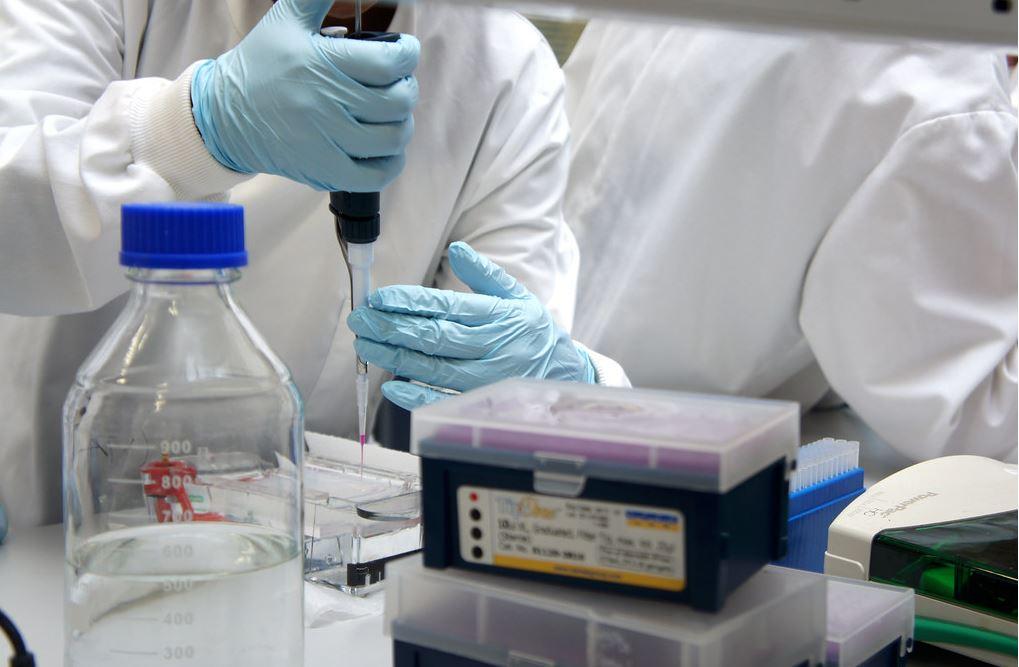Breaking down the barrier: Fighting fibrosis in pancreatic cancer
 The Medical Research Council has awarded Barts Cancer Institute (BCI)’s Dr Susana Godinho a £600,000 project grant to fund vital research on pancreatic cancer. The funding will support a postdoctoral researcher and technician in Dr Godinho’s laboratory to investigate ways to tackle the impenetrable barrier that surrounds pancreatic tumours, in the hope of identifying targets for therapeutic intervention.
The Medical Research Council has awarded Barts Cancer Institute (BCI)’s Dr Susana Godinho a £600,000 project grant to fund vital research on pancreatic cancer. The funding will support a postdoctoral researcher and technician in Dr Godinho’s laboratory to investigate ways to tackle the impenetrable barrier that surrounds pancreatic tumours, in the hope of identifying targets for therapeutic intervention.
Despite overall cancer survival doubling in the UK in the last 40 years, outcomes in pancreatic cancer patients have shown limited improvement and only around 5% of those with this cancer survive for 5 years after their diagnosis. One aspect of pancreatic cancer that makes it such a difficult-to-treat disease is the impenetrable barrier that surrounds the tumours, which limits the access of drugs and immune cells to the tumour. This barrier is created by cells in the tumour microenvironment, called stellate cells, in a process known as fibrosis.
Cutting off communications
 Previous research conducted by Dr Godinho and her team, published in Developmental Cell, found that some cancer cells within a tumour may develop an abnormal number of centrosomes (a cellular structure that is important for the nucleation and organisation of the cell’s skeleton). Their research revealed that cells with extra centrosomes, i.e. those with centrosomal amplification, contribute to tumour progression by communicating with and changing the behaviour of surrounding cells.
Previous research conducted by Dr Godinho and her team, published in Developmental Cell, found that some cancer cells within a tumour may develop an abnormal number of centrosomes (a cellular structure that is important for the nucleation and organisation of the cell’s skeleton). Their research revealed that cells with extra centrosomes, i.e. those with centrosomal amplification, contribute to tumour progression by communicating with and changing the behaviour of surrounding cells.
Following on from this research, the team identified that cancer cells with extra centrosomes communicate with stellate cells by releasing small packages containing signals. These signals instruct the stellate cells to become activated, and as a result may trigger fibrosis in pancreatic cancer. Thus, Dr Godinho and her team endeavour to understand the mechanisms behind this process and determine whether blocking this communication could prevent fibrosis and ultimately improve treatment outcomes for patients.
Dr Godinho said:
“Our work will not only contribute to understanding for the first time the role of centrosome amplification in the tumour microenvironment, but may also have a major impact in developing therapeutic strategies that target fibrosis to treat patients that suffer from pancreatic cancer.”
In collaboration with BCI’s Professor Hemant Kocher, Dr Faraz Mardakheh, Dr Oliver Pearce and Dr Pedro Cutillas, Dr Godinho’s team will look at how centrosomal amplification leads to the release of these activation signalling packages. They will also look at the specific molecules contained within these packages to determine whether they can be targeted and blocked to prevent stellate cell activation. Subsequently, in order to determine the clinical potential of their findings, the team will use preclinical models of pancreatic cancer to test the treatment efficacy of blocking the communication between cancer cells and stellate cells.
Although pancreatic cancer accounts for only 3% of the total cancer cases in the UK each year, with around 10,000 new pancreatic cancer cases diagnosed annually, it has the lowest survival rate of all the common cancers and claims the lives of approximately 9,000 people each year. It is therefore vital to identify novel targets for treatment in order to improve outcomes for patients with this devastating cancer.
Category: General News, Grants & Awards

No comments yet